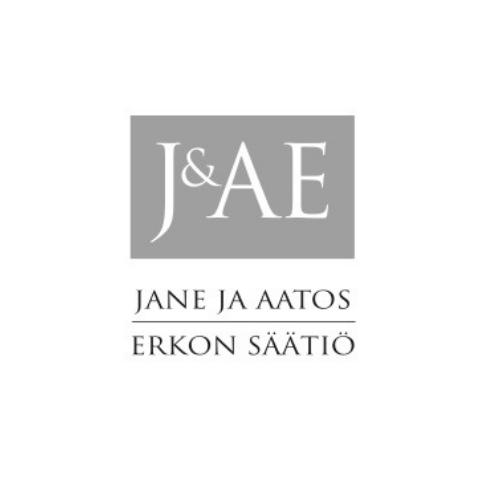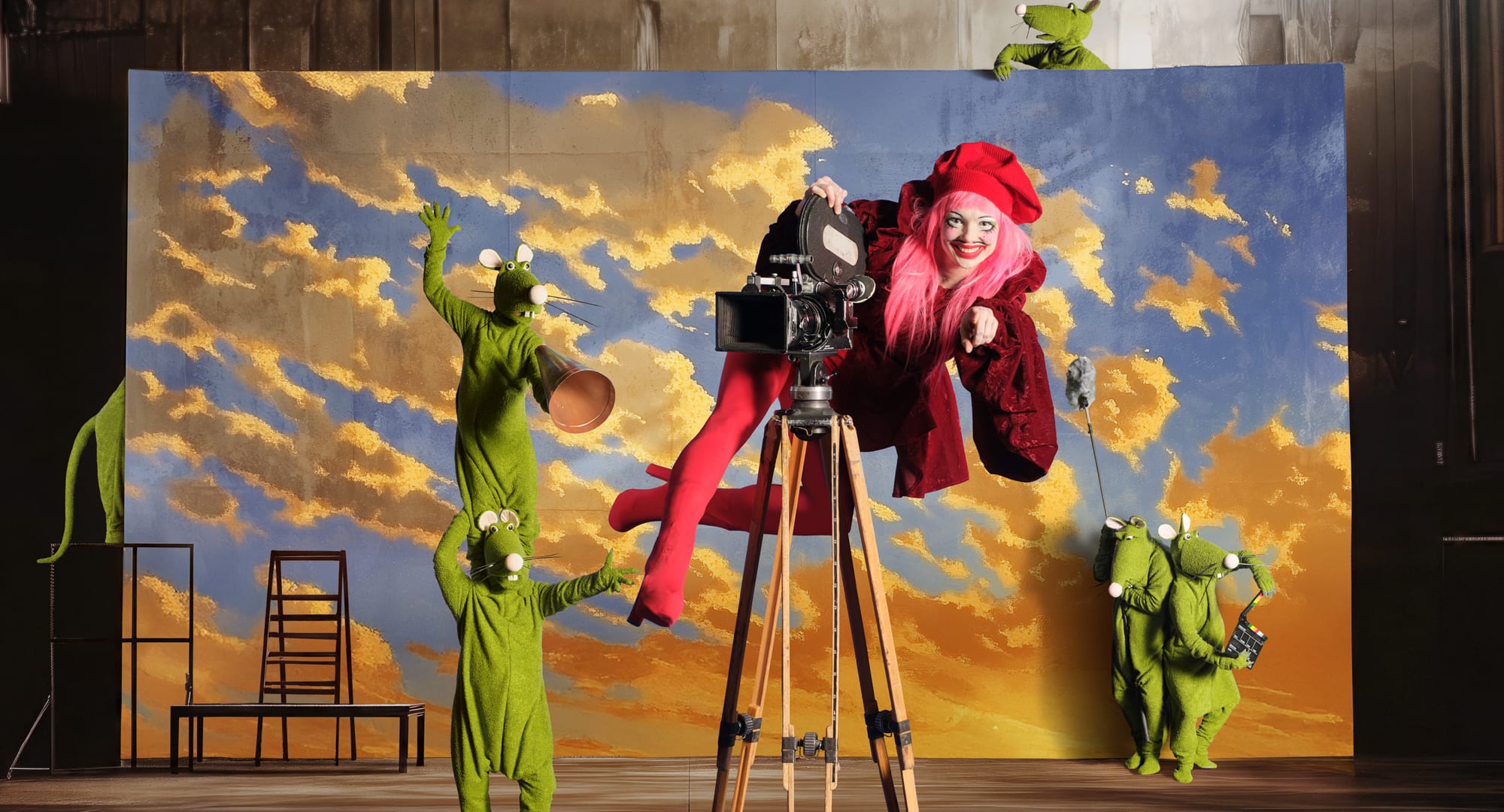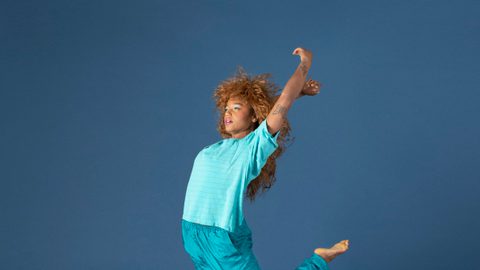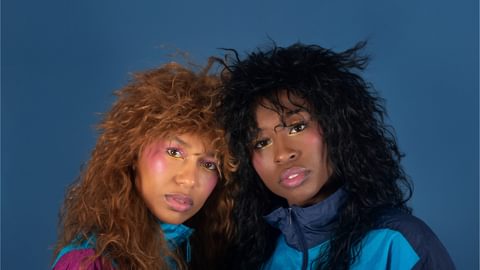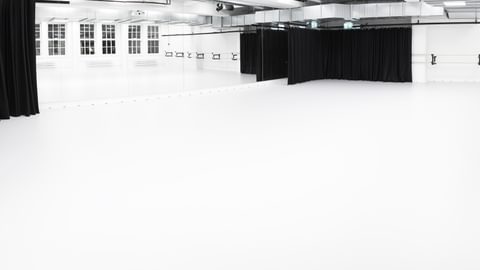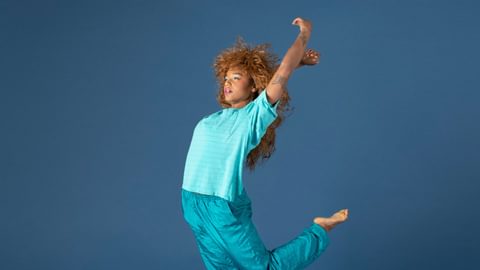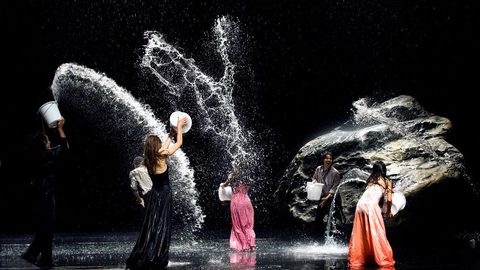
Tanztheater Wuppertal Pina Bausch: Vollmond (Full moon)
-
3 performances
3.11-5.11.2022
-
Duration
2 h 30 min, one intermission
-
Venue
Erkko Hall
-
Tickets
60-36 €
Schedule
Thu 3.11.2022 at 19:00
Fri 4.11.2022 at 19:00
Sat 5.11.2022 at 19:00
Duration 2 h 30 min, one intermission
Doors open at 17:30.
Programme
Dance House Helsinki brings for the first time to Finland the masterpiece by iconic Pina Bausch
Oscillating between cruel, ambivalent violence in the relationships between the sexes and more melancholy scenarios driven by longing, the dancers in Full Moon penetrate the depths of their imaginary, conscious and subconscious worlds.
At times driven, hurling themselves around the space in the most dangerous ways, at others almost somnambulatory and fragile, tenderly as if in a dream, they brave the challenges of Peter Pabst’s stage set. It is a tribute to the power of water – or nature? The elements? They run through ankle-deep water, swim across the moat underneath the tall rock, slide, jump, crash against walls and dance wildly in Marion Cito’s long dresses, which become completely drenched in water. They shiver in the cold, slip, give it their all – and then say with a wink: “I It’s full moon - you won’t get drunk”.
The events are sold out - a few additional tickets coming on sale on 14th October at 10 AM.
Pina Bausch & Tanztheater Wuppertal Pina Bausch
Pina Bausch (1940-2009) wrote dance history. She not only founded the world-famous company in Wuppertal, she shaped a whole genre – dance theatre – and influenced countless other artists, choreographers and directors worldwide who credit her and her work. For this she received a great many prizes, such as the German Dance Prize, Venice’s Golden Lion and the Kyoto Prize.
When she first arrived in Wuppertal in 1973, no-one guessed she would reinvent modern dance there. The young dancer and choreographer took over the ballet company at the Wuppertaler Bühnen (the combined municipal theatres) and soon renamed it the Tanztheater Wuppertal (‘Wuppertal dance theatre’), because that was her goal: to unite dance and theatre.
Pina Bausch enriched dance. She added speech, acting and singing to it, and influences from art-forms of the whole world later. In the process she created a new dance language which she took to countless countries as a cultural ambassador, a language understood everywhere, being timeless and steeped in a profound humanity. She made forty-six works, and even decades after their creation they move us, stir us, touch a nerve. Many of the works are still in the company’s repertoire, ten years after its founder’s death, and the company maintains and preserves this heritage with great devotion, care and energy.
Her pieces often describe very everyday matters. Human beings are always at the centre, with all their hopes, fears and uncertainties. Pina Bausch homed in on her themes by questioning the dancers. In scenes of complex intimacy between men and women she often showed how people experience speechlessness, exploitation, humiliation and addiction.
With Viktor (1986) the era of the co-productions began. Right up to her death Pina Bausch worked with theatres and institutions in France, Italy, Spain, Portugal, Turkey, India, the USA, Argentina, Hong Kong, Japan and Korea, gaining inspiration from these countries and cultures.
With Pina Bausch the dancers always took centre stage. Every dancer brings their personality to the work. There are currently thirty-two dancers, from seventeen different countries. Three generations work on the pieces together; the older dancers pass their roles on to the younger dancers, sharing the experience inscribed in their bodies – over decades in some cases. New pieces by other choreographers are gently expanding the repertoire and responding to Pina Bausch’s legacy; in 2018 it was Alan Lucien Øyen and Dimitris Papaioannou, followed in 2021 by Richard Siegal and Rainer Behr. September 2022 the French choreographer Boris Charmatz will take over the Artistic Direction of the company.
Tanztheater Wuppertal Pina Bausch
Choreography
Pina Bausch
Set Design
Peter Pabst
Costumes
Marion Cito
Musical Collaboration
Matthias Burkert
Collaboration
Marion Cito, Daphnis Kokkinos, Robert Sturm
Assistant Set Design
Alexandra Corrazola
Assistant Costumes
Jo van Norden
Rehearsal Directors
Daphnis Kokkinos, Robert Sturm
Dancers
Dean Biosca, Taylor Drury, Silvia Farias Heredia, Ditta Miranda Jasjfi, Reginald Lefebvre, Alexander López Guerra, Nicholas Losada, Milan Nowoitnick Kampfer, Ekaterina Shushakova, Julie Anne Stanzak, Christopher Tandy, Tsai-Chin Yu
Music
Amon Tobin, René Aubry, Nenad Jelić , Magyar Posse, Leftfield, Jun Miyake, Cat Power, The Alexander Balanescu Quartett, Tom Waits and others
Premiere
11 May 2006
Performance Rights
Verlag der Autoren, Frankfurt am Main, representing Pina Bausch Foundation
Artistic Director
Boris Charmatz
Managing Director
Roger Christmann
Supported by
